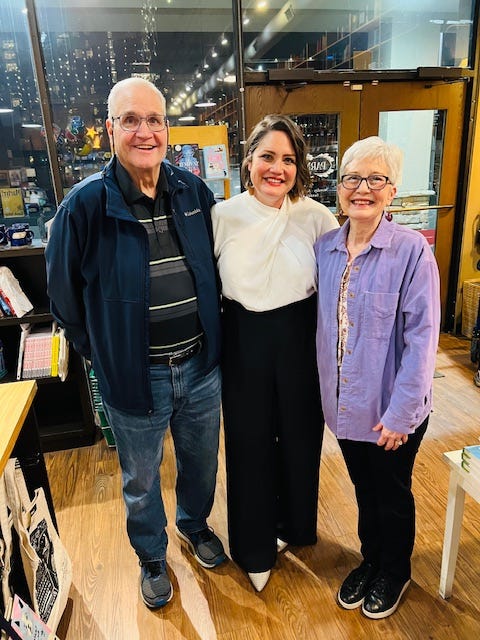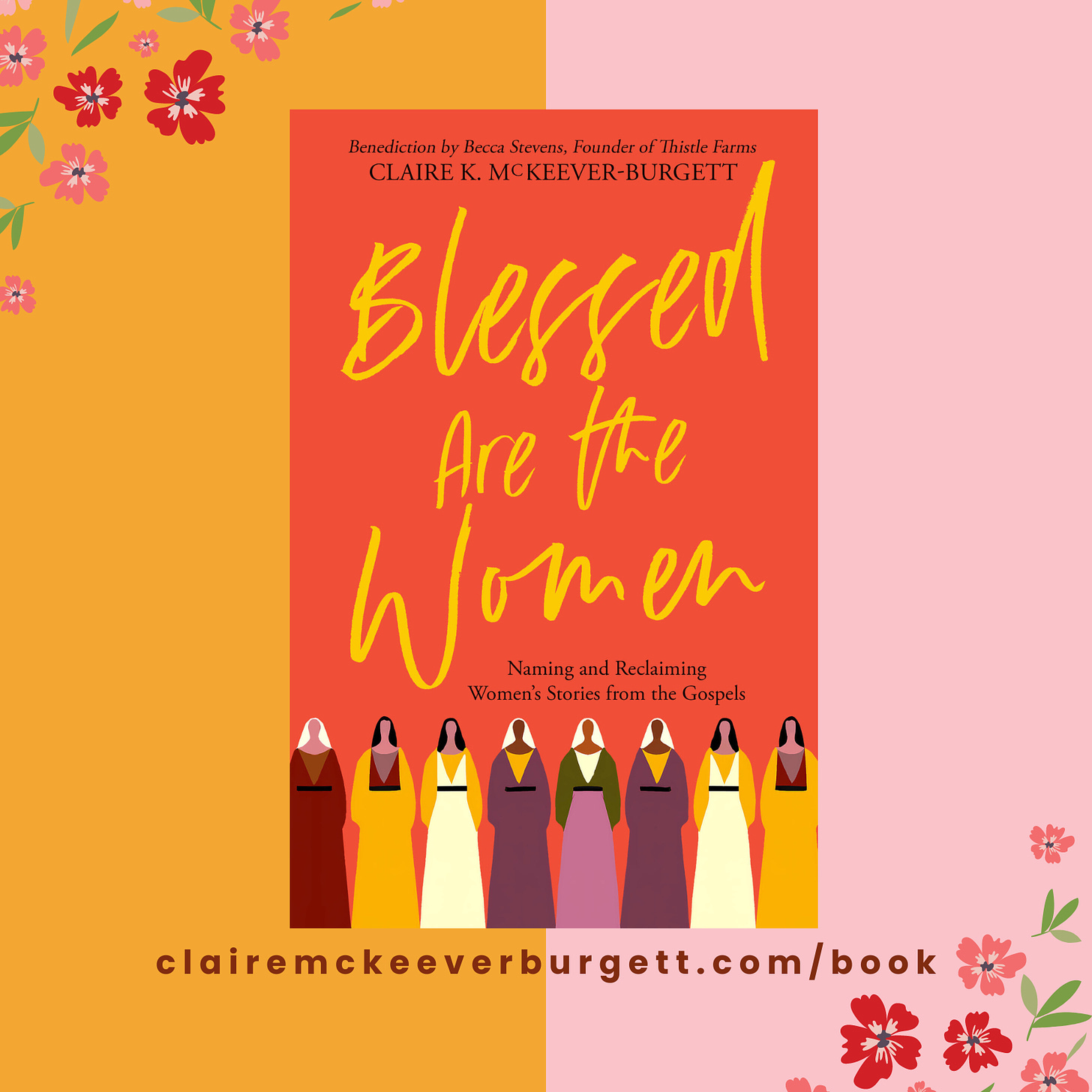the fluidity of mothering
to take good care, to nourish and to love, to protect and to comfort is a job for all of us.

Dearly Beloveds,
When I was twenty-one years old, I had to have emergency surgery to remove a septic abscess from my body. I was in Waco and had recently started my senior year of college. My mom came to be with me during the surgery, and she drove me home to Abilene afterward, where I could recover and be cared for by both of my parents.
As I slowly emerged from being under anesthesia, I started crying, looked at my mom, and said, “I want my dad! Where’s my dad? I want him!”
We laugh when telling this story now. My mom was secure enough in herself to know that while she didn’t doubt I wanted my dad (so many of us have had the same reaction to him throughout our lives–his calm, steady, kind presence is a gift), she knew she could care for me well until she could get me to him.
Of course, it was my mom who changed my bandages, helped me use the bathroom, drew me warm baths, and doled out my pain medication in the two weeks I was home to recover. The operation was on a very sensitive place of my body, and I felt more comfortable with her in my intimate spaces, especially at that time of my life.
But my dad provided comfort through his presence. It’s always been like that with him. As long as I know he’s near, as long as I can hear his heartbeat and climb into his lap or wrap my arms around him and feel his arms wrapped around me, I know I’ll be okay.
In many ways, he’s like the Mama Bear in winter who wraps me up in warmth and love so I can rest, and my mom is like the Mama Bear in spring and summer who will fight off anything that might threaten my safety. Honestly, I couldn’t ask for a better team.
I share these observations on Mother’s Day to emphasize the fluidity of mothering and to show that mothers are not relegated to gender–that to take good care, to nourish and love, to protect and comfort is a job for all of us.
For far too long we’ve been handed the patriarchal narrative that fathers are to be tough and strong and mothers are to be soft and tender. But what evidence do we have to back that narrative up? Are we not both soft and strong all at once?
In the past year or so, my dad’s been in the throes of a major health crisis, and my mom’s been by his side the entire way. My parents now live down the street from my family and me, and we get to be in their circle of care. I write about Dad’s health journey on his CaringBridge site, and I welcome your prayers for him and for all of us.
As I was leaving Mom and Dad’s house recently, I put my arms around Dad’s shoulders and gave a little squeeze. He leaned into me, resting his tired head on my side. At that moment, I was both 42 and 22 and 12 years old as I relished the warmth and comfort of my dad’s body next to mine.
Then, my mom followed me out the door, asking me questions about my day, curious what we were having for dinner and what projects I was working on. I stopped, opened my arms to her, and we embraced each other until our breath steadied and our shoulders relaxed.
Turns out, I need both my mom and my dad to mother me – and they need me to mother them. (In the sense of giving and receiving care, in the sense that we heal, blessedly, together.)
Turns out, all of us need mothering.
Turns out, mothering is a way of being that transcends gender and age, taking root within the heart, blooming forth with a fierce love and a gentle march toward wholeness.
Turns out, mothering is for all of us–an embodied act of soft skin, deep breaths, intense advocacy, and forever love that can change the world if we let it.
Happy Mother’s Day.
Claire
***
Mother-Centered Orgs You Need to Check Out
***
Remember, beloveds, if “to mother” is to help bring about the world that God, Our Mother, so loves and labors alongside us to bring forth, then all of us are called to mother.
***
Thank you for reading my Substack. This post is public so feel free to share it.




❤️